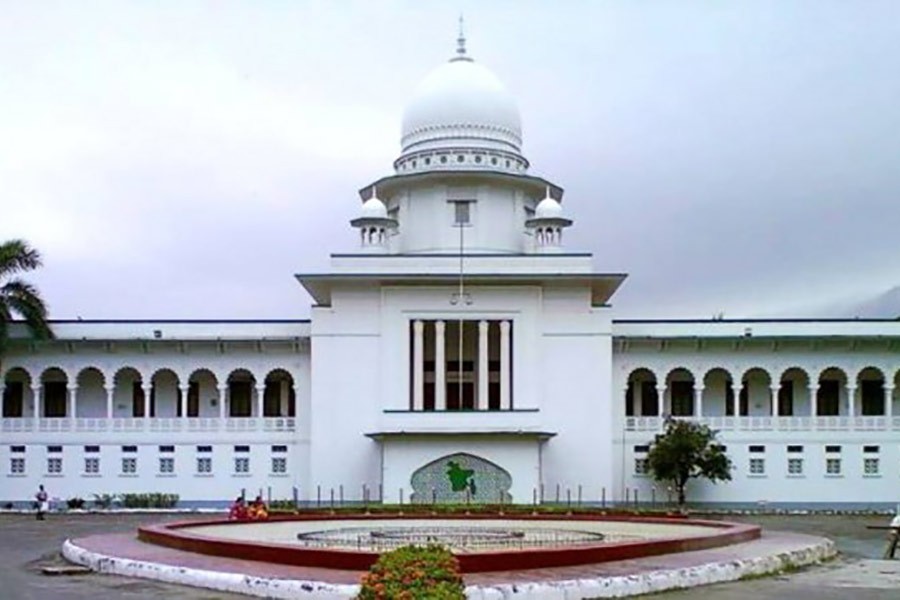2020 is the year of Bangabandhu. A year to be celebrated, cherished, and remembered by all. Millions of words have been committed to paper here and overseas, transmitted across the TV and Radio airwaves and captured for eternity on celluloid and in various digital formats about the foremost national hero. Trillions more will no doubt follow - as they ought.
Bangabandhu was a member of a small elite club of exceptionally great human beings who changed the course of history and made the world a better place - Abraham Lincoln, Mahatma Gandhi, Martin Luther King, Michael Collins, John F. Kennedy, and more recently Nelson Mandela, to mention a few.
Of all his many outstanding attributes, the one that gets my highest admiration and loudest applause is his abhorrence of corporal punishment.
Another great Bengalee is eternal poet Nobel Laureate Rabindranath Tagore. Among the 2230 songs and countless words he wrote, the eight words which should be most prominent in the minds of all good parents and good school/madrasah teachers are: 00"To discipline means to teach, not to punish".
When you teach a child, you teach the adult they become. Bangabandhu shared the same philosophy. Both Bangabandhu and Tagore would turn in their graves were they to witness the conduct of some 'teachers' and Imams at some schools and madrasahs.
If we cannot see the harm corporal punishment causes to children, there's little hope of Bangladesh ever achieving its greatest potential.
On January 13, 2011, the High Court of Bangladesh made it very clear that corporal punishment was an arch enemy of the state.
Justice Md. Imman Ali and Md. Sheikh Hasan Arif outlawed the inhuman, ineffective, ignorant practice in schools and madrasahs throughout Bangladesh, declaring it to be: 'cruel, inhuman and degrading treatment and a clear violation of a child's fundamental right to life, liberty and freedom'.
Anyone with an iota of intelligence could clearly see that kicking, grabbing, shoving, slapping, pushing, pinching or confining children in a small space, taping their mouths shut, pulling their hair, tugging at their ears, belittling, mocking, embarrassing, swearing, cursing and robbing them of their dignity, making them look foolish in front of their peers or breaking sticks upon their young tender hands, could not help their development - or the children who are watching - or help them to become upstanding citizens.
Last year, standard 2 student Mohamed Juma, 14, died after receiving corporal punishment by his 'teacher'. On his way to hospital with his father for a check-up he began vomiting blood, collapsed, and died.
Another boy needed surgery after a 'teacher' had kicked him in the genitals.
A Class 4 student collapsed and fell unconscious after an angry teacher flung an object at him that hit him in the groin and made him unconscious. The 'teachers' then called other students and asked them to throw him in the open field opposite the school where he was left agonising in pain for 30-minutes before fellow students took him to a clinic.
Any government that claims, and seriously believes (hand-on-heart) that, "children are the future of the nation", and "the supreme assets of the nation" and permit corporal punishment, needs to have a serious rethink about its values.
Corporal punishment, unquestionably, is child abuse that's been falsely labelled as discipline. To call it anything else is distortion of the facts. To believe it to be anything else is ignorance of the facts. The very foundation of the nation (any nation) is built on schools - the mental gyms where young developing minds are rigorously exercised and prepared for universities and far beyond.
There's a line in George Bernard Shaw's immortal play 'Man and Superman' that says: "Those who can, do; those who can't, teach".
This, over the years, has been erroneously misinterpreted to mean, teachers themselves are incapable of success, which is totally false, at least it does not apply to all of them.
There are remarkable teachers around the world (including in Bangladesh) who are performing extraordinary work on par with the best for the benefit of society, but they are often let down by the system. Teachers, after all, are the traffic police who initially advise, direct, and guide us, to our true destinations in life.
Every loving parent wants to make life better for his/her child. They want them to have more, to enjoy more than they ever did and not go through the pain, heartaches, suffering and struggles to survive they did... because they love them. (We do not love people because they are good, but we want them to be good because we love them - Oscar Wilde).
Not only is it commonsense to most, but also it has been proven beyond a shadow of doubt, that corporal punishment has no benefits whatsoever. If we are ever to achieve the status of Sonar Bangla and fulfil Bangabandhu's dream, the most logical place to begin are schools and rid them of all the destructive elements.
Good education is the solid foundation of every nation and without it nations are guaranteed to decay and crumble.
The greatest birthday present 'teachers' and Imams in Bangladesh can give Bangabandhu on his 100th birthday anniversary this March 17, would be to abstain from giving corporal punishment and damaging the children - the future of Bangladesh.
Good luck to Education Minister Dr. Dipu Moni MP, in her efforts to bring about the education system Bangabandhu would want Bangladesh ought to have.
Sir Frank Peters is a former newspaper and magazine publisher and editor, an award-winning writer, a royal goodwill ambassador and humanitarian.


